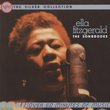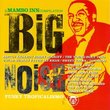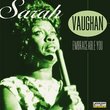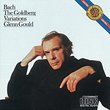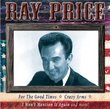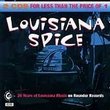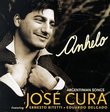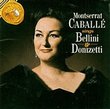| All Artists: NBC Symphony Orchestra, Robert Shaw Chorale, Giuseppe Verdi, Luigi Cherubini, Herva Nelli Title: Arturo Toscanini: NBC Symphony Orchestra- Vol.XI Members Wishing: 0 Total Copies: 0 Label: RCA Original Release Date: 1/1/2000 Re-Release Date: 4/4/2000 Album Type: Original recording remastered Genre: Classical Styles: Opera & Classical Vocal, Historical Periods, Classical (c.1770-1830), Early Music Number of Discs: 2 SwapaCD Credits: 2 UPC: 743217237325 |
Search - NBC Symphony Orchestra, Robert Shaw Chorale, Giuseppe Verdi :: Arturo Toscanini: NBC Symphony Orchestra- Vol.XI
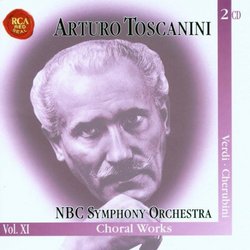 | NBC Symphony Orchestra, Robert Shaw Chorale, Giuseppe Verdi Arturo Toscanini: NBC Symphony Orchestra- Vol.XI Genre: Classical
|
Larger Image |
CD DetailsSimilarly Requested CDs
|
CD ReviewsAt long last, Toscanini's recordings are somewhat listenable madamemusico | Cincinnati, Ohio USA | 07/09/2000 (4 out of 5 stars) "I have enjoyed Toscanini's performances of classical music since I was a teenager, now almost 35 years ago, but I was never very happy about the thin, shrill sound of his recordings. Why did they sound so bad? It took me years to discover that, unlike Stokowski or Koussevitzky, Toscanini had no interest in the technical side of making records. As long as he could hear all the orchestral "voices," he was content, if not entirely happy. This left the technical end of the business up to various producers and engineers at RCA, many of whom had their own crackpot ideas about how to position microphones. (Please remember, the early RCA Opera Series LPs sounded just as thin, shrill and dry as Toscanini's recordings; remember the Reiner "Carmen," or the Cellini recordings of "Rigoletto" and "Il Trovatore.") What this did was compress the tremendous crescendos that Toscanini achieved, turning them into crunching sounds that simply overwhelmed the microphones. And then, when these tapes were processed into LP discs, they compressed the sound even more, with the result that Toscanini sounded as if he were conducting a military band in your bathroom instead of a real, live symphony orchestra in Carnegie Hall.With the advent of 20-bit remastering, however, and the dedication of real music-lovers intent on restoring (as much as possible) the sound of the original tapes, RCA has issued a mere 24 CDs of the Toscanini legacy in this new format (in 12 2-CD sets). Luckily, the series includes his Beethoven symphonies, which were landmarks of the time, as well as Italian orchestral music that meant a lot to him (see listings). And it also includes these 1950-54 performances of the Cherubini Requiem, as well as the Verdi Requiem and Te Deum.Words cannot describe how wonderful this Verdi Requiem sounds, especially in comparison to the original LPs (may they rest in pieces). Only in two or three places do the massed sound of choirs, brass, strings and percussion have the "nasty" crunching sound as in the past. Otherwise, even in the "Libera me," the percussion and brass sounds wonderfully natural. And, finally, one can hear the natural Carnegie Hall ambience around the voices of the soloists, Herva Nelli, Fedora Barbieri, Giuseppe DiStefano and Cesare Siepi, who are all in fabulous voice.As for the performance: I have been told by many Toscanini experts that his 1940 performance with Milanov and Jussi Bjorling far surpasses this one, but I once owned that recording and don't you believe it. Granted, the "Ingemisco" and "Offertorio" are swifter and tauter here than in the 1940 recording, but they sound wonderful in context. Indeed, I found myself both emotionally moved and intellectually satisfied by this Requiem as I have been by no other...not even the great Giulini and Karajan recordings. For the first time EVER, I perceived an underlying structure in the work, rather than just hearing it as a sort of suite of interesting but disconnected fragments. I also heard orchestral details that passd unnoticed in even the best digital stereo versions, i.e. sinister oboes and bassoons in the earlier sections, pizzicato strings in the "Libera me." Please, please believe me, this is a MIRACULOUS performance.The "Te Deum," from 1954, boasts the most modern and natural sound of all. But what really surprised me was the clarity and warmth imparted to the Cherubini Requiem, which was recorded in the "notorious" Studio 8-H. Suffice to say that, in comparison to all other available versions of these works, these are THE preferred performances...especially so now that you can actually hear them without cringing." New sound is a major improvement pm444 | Okemos, MI USA | 06/20/2001 (5 out of 5 stars) "I bought the 1990 remastering of the Verdi "Requiem" but after one or two times, I did not listen to it very often, since the sound was compressed and the loudest passages were badly distorted. This new remastering is a significant improvement over the older one, and allows the listener to really enjoy the performance, unhindered by sonic annoyances. The performance was a live radio broadcast, with all of the intensity and power that the best such performances can have. Highly recommended as the definitive "historical" performance of the Verdi "Requiem"." A remastering to rejoice over Santa Fe Listener | Santa Fe, NM USA | 12/11/2005 (5 out of 5 stars) "I've heard before-and-after examples of BMG's amazing remastering job on the old Toscanini archive, and this Verdi Requiem is one of the very best. Despite the original microphone placement, which puts the chorus a bit too far back and the inner woodwinds too close, those are quibbles compared to the vibrant solo voices and the sudden expansion of space compared to the pinched acoustic we've winced over for fifty years.
This is a work that Toscanini has only himself to compete with. He didn't take a revernet approach to the Requiem--the whole cast of Aida has taken a wrong turn and wound up in church. Much of the time the soloists are clearly competing, and why not? Siepi, Di Stefano, and Barbieri in full voice are magnificent. Herva Nelli had no significant career on records aside from those with Toscanini, but she comes across here as a secure, committed dramatic soprano. That Toscanini's reading fits on one disc testifies to its fiery tempos and untethered drama. The Robert Shaw chorale wouldn't be bettered until professional choruses became the norm in following decades; too bad they are the least audible aspect of the recording. I think this Verdi Requiem must be judged a first-choice, along with the Debussy La Mer, among the newly remastered "Immortal" series that I've encountered so far." |

 Track Listings (19) - Disc #1
Track Listings (19) - Disc #1